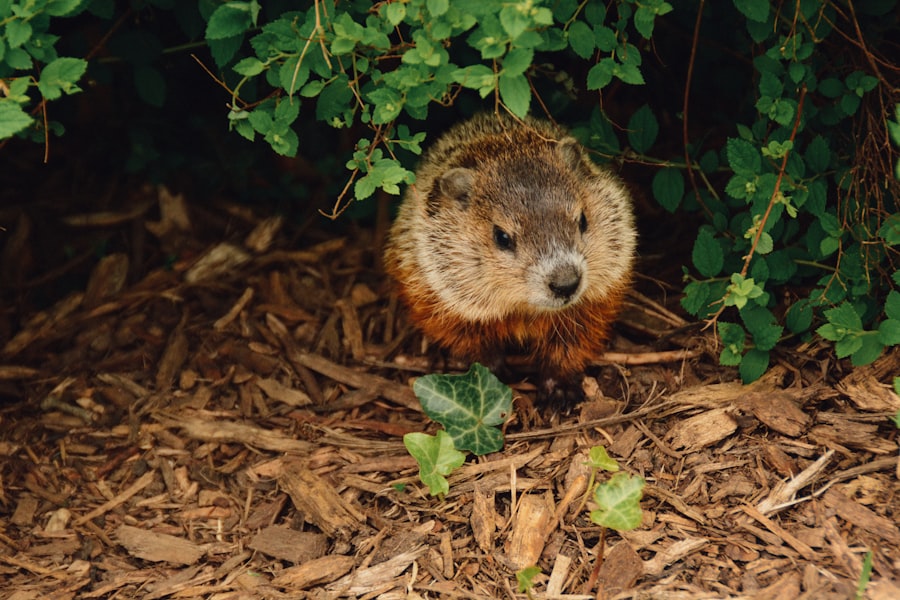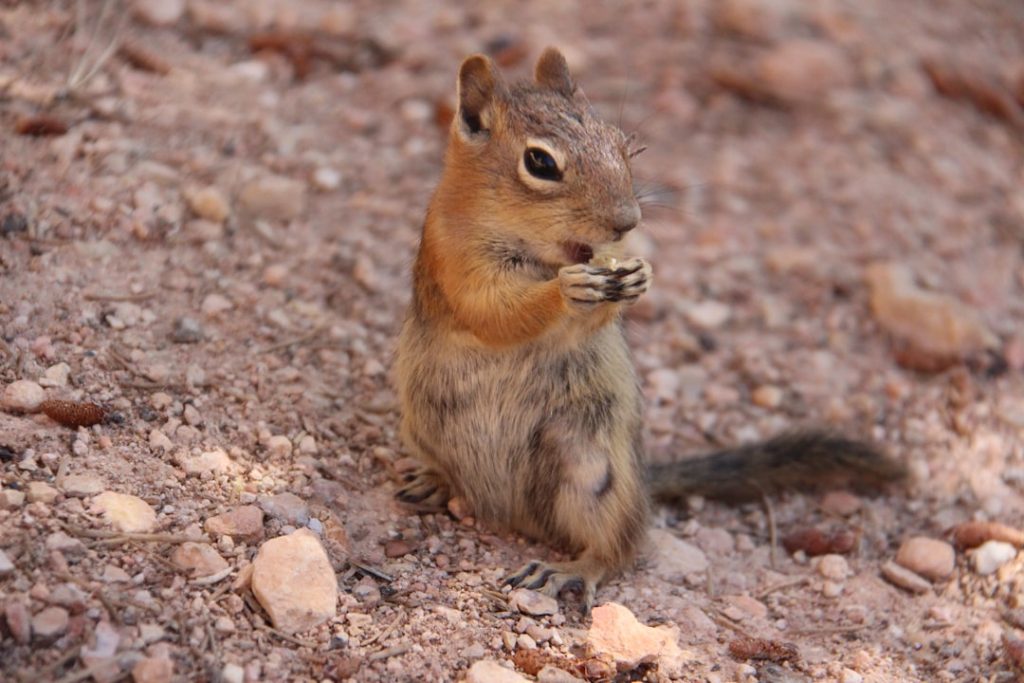Rats and mice pose significant health and safety risks to chickens. These rodents are carriers of various diseases, including salmonella, leptospirosis, and hantavirus, which can be transmitted to chickens through direct contact or contaminated food and water sources. Rodents also consume chicken feed and eggs, potentially leading to malnutrition and reduced egg production in the flock.
Their gnawing behavior can damage chicken coops, creating entry points for other predators such as snakes and raccoons. In severe infestations, rats and mice may even attack and kill young chicks. To protect their flocks, chicken owners must implement proactive measures to prevent and control rodent populations in and around their coops.
These measures are essential for maintaining the health, productivity, and safety of chickens.
Table of Contents
- 1 Securing the Coop: Implementing Physical Barriers to Keep Rodents Out
- 2 Cleanliness is Key: Maintaining a Tidy and Sanitary Environment for Chickens
- 3 Natural Deterrents: Using Plants and Essential Oils to Repel Rodents
- 4 Proper Food Storage: Storing Chicken Feed in Rodent-Proof Containers
- 5 Regular Inspections: Monitoring for Signs of Rodent Activity and Taking Prompt Action
- 6 Working with Professionals: Seeking the Help of Pest Control Experts if the Problem Persists
- 7 FAQs
- 7.1 What are the common signs of rats and mice infestation in a chicken coop?
- 7.2 How can rats and mice pose a threat to chickens?
- 7.3 What are some effective methods to keep rats and mice away from chickens?
- 7.4 Are there any natural deterrents for rats and mice in a chicken coop?
- 7.5 How often should I inspect my chicken coop for signs of rats and mice?
Key Takeaways
- Rats and mice pose a threat to chickens by consuming their feed, spreading diseases, and even attacking the birds.
- Implement physical barriers such as wire mesh and concrete to keep rodents out of the chicken coop.
- Maintaining a tidy and sanitary environment is crucial in preventing rodent infestations in chicken coops.
- Use plants like mint and essential oils like peppermint to naturally repel rodents from the chicken coop area.
- Store chicken feed in rodent-proof containers to prevent access and contamination by rats and mice.
- Regularly inspect the coop for signs of rodent activity and take prompt action to address any issues.
- If the rodent problem persists, seek the help of pest control professionals to effectively manage the infestation.
Securing the Coop: Implementing Physical Barriers to Keep Rodents Out
Inspect and Seal Gaps and Holes
Start by thoroughly inspecting the coop for any gaps or holes that rodents could use to gain entry. Seal these openings with hardware cloth or wire mesh, making sure to secure it tightly to prevent rodents from chewing through.
Install Rodent-Proof Doors and Windows
Additionally, consider installing rodent-proof doors and windows with tight-fitting screens to further prevent entry. This will help to block any potential entry points for rats and mice.
Elevate the Coop and Create a Barrier
Elevating the coop off the ground is another effective measure, as rats and mice are less likely to burrow underneath if there is no easy access. Use concrete blocks or wire mesh to create a barrier around the base of the coop to deter digging. Finally, consider adding a skirt of hardware cloth around the perimeter of the coop to prevent rodents from digging their way in from the outside.
Cleanliness is Key: Maintaining a Tidy and Sanitary Environment for Chickens

Keeping a clean and sanitary environment is essential in preventing rodent infestations in the chicken coop. Regularly remove any spilled feed, as this can attract rats and mice. Store chicken feed in rodent-proof containers to prevent easy access for rodents.
Additionally, keep the coop free of clutter and debris, as these provide hiding spots for rodents. Regularly clean and disinfect the coop, nesting boxes, and feeders to eliminate any potential sources of contamination. Consider using natural cleaning agents such as vinegar or citrus-based cleaners, as these can help deter rodents while being safe for chickens.
Finally, maintain good waste management practices by regularly removing soiled bedding and droppings from the coop area. Maintaining a tidy and sanitary environment is crucial in preventing rodent infestations in the chicken coop. Regularly remove any spilled feed, as this can attract rats and mice.
Store chicken feed in rodent-proof containers to prevent easy access for rodents. Additionally, keep the coop free of clutter and debris, as these provide hiding spots for rodents. Regularly clean and disinfect the coop, nesting boxes, and feeders to eliminate any potential sources of contamination.
Consider using natural cleaning agents such as vinegar or citrus-based cleaners, as these can help deter rodents while being safe for chickens. Finally, maintain good waste management practices by regularly removing soiled bedding and droppings from the coop area.
Natural Deterrents: Using Plants and Essential Oils to Repel Rodents
In addition to physical barriers and cleanliness, natural deterrents can also be effective in repelling rats and mice from the chicken coop. Consider planting rodent-repelling plants such as mint, lavender, or marigold around the perimeter of the coop. These plants emit strong scents that are known to deter rodents.
Another natural deterrent is the use of essential oils such as peppermint, eucalyptus, or citronella. Soak cotton balls in these oils and place them strategically around the coop to create a barrier that rats and mice will avoid. Additionally, consider using natural predators such as barn owls or cats to help control rodent populations around the coop.
In addition to physical barriers and cleanliness, natural deterrents can also be effective in repelling rats and mice from the chicken coop. Consider planting rodent-repelling plants such as mint, lavender, or marigold around the perimeter of the coop. These plants emit strong scents that are known to deter rodents.
Another natural deterrent is the use of essential oils such as peppermint, eucalyptus, or citronella. Soak cotton balls in these oils and place them strategically around the coop to create a barrier that rats and mice will avoid. Additionally, consider using natural predators such as barn owls or cats to help control rodent populations around the coop.
Proper Food Storage: Storing Chicken Feed in Rodent-Proof Containers
Proper food storage is essential in preventing rats and mice from accessing chicken feed. Store all feed in rodent-proof containers made of metal or heavy-duty plastic with secure lids that cannot be easily chewed through by rodents. Keep these containers elevated off the ground on shelves or racks to further prevent access by rats and mice.
Additionally, regularly inspect the storage area for any signs of rodent activity such as droppings or gnaw marks, and take prompt action to address any issues. Proper food storage is essential in preventing rats and mice from accessing chicken feed. Store all feed in rodent-proof containers made of metal or heavy-duty plastic with secure lids that cannot be easily chewed through by rodents.
Keep these containers elevated off the ground on shelves or racks to further prevent access by rats and mice. Additionally, regularly inspect the storage area for any signs of rodent activity such as droppings or gnaw marks, and take prompt action to address any issues.
Regular Inspections: Monitoring for Signs of Rodent Activity and Taking Prompt Action

Identifying Rodent Activity
Look for droppings, gnaw marks, or burrows near the coop, as these are all indicators of rodent presence. Additionally, keep an eye out for any changes in chicken behavior that could indicate stress or discomfort caused by nearby rodents.
Taking Action Against Rodents
If any signs of rodent activity are detected, take prompt action to address the issue by implementing traps or baits in strategic locations around the coop. Regularly check these traps and remove any captured rodents to prevent further infestation.
Prevention and Maintenance
Regular inspections are crucial in monitoring for signs of rodent activity in and around the chicken coop. Regularly check these traps and remove any captured rodents to prevent further infestation.
Working with Professionals: Seeking the Help of Pest Control Experts if the Problem Persists
If despite all efforts, a rodent infestation persists in the chicken coop, it may be necessary to seek the help of pest control experts. Professional exterminators have the knowledge and tools necessary to effectively eliminate large infestations of rats and mice while ensuring the safety of chickens. They can also provide valuable advice on long-term prevention strategies to keep rodents at bay.
Additionally, consider consulting with a veterinarian if there are concerns about potential health risks posed by rodent-borne diseases in the flock. If despite all efforts, a rodent infestation persists in the chicken coop, it may be necessary to seek the help of pest control experts. Professional exterminators have the knowledge and tools necessary to effectively eliminate large infestations of rats and mice while ensuring the safety of chickens.
They can also provide valuable advice on long-term prevention strategies to keep rodents at bay. Additionally, consider consulting with a veterinarian if there are concerns about potential health risks posed by rodent-borne diseases in the flock. In conclusion, rats and mice pose a significant threat to chickens due to their potential for disease transmission, food theft, property damage, and even direct attacks on young chicks.
To protect chickens from these dangers, it is essential for chicken owners to implement physical barriers such as wire mesh and elevated coops, maintain a clean environment free of food sources and clutter, use natural deterrents like plants and essential oils, store feed in rodent-proof containers, conduct regular inspections for signs of rodent activity, and seek professional help if needed. By taking proactive measures against rodent infestations, chicken owners can ensure a safe and healthy environment for their flock while minimizing potential risks posed by rats and mice.
If you’re looking for tips on how to keep rats and mice away from your chickens, you may also be interested in learning about how to care for goslings. Check out this article for helpful information on raising and caring for geese.
FAQs
What are the common signs of rats and mice infestation in a chicken coop?
Common signs of rats and mice infestation in a chicken coop include droppings, gnawed feed bags, chewed eggs, and nests made from shredded materials.
How can rats and mice pose a threat to chickens?
Rats and mice can pose a threat to chickens by consuming their feed, contaminating their food and water with droppings, and potentially spreading diseases.
What are some effective methods to keep rats and mice away from chickens?
Effective methods to keep rats and mice away from chickens include sealing all entry points, keeping the coop clean and free of food scraps, using traps and baits, and maintaining a tidy outdoor area.
Are there any natural deterrents for rats and mice in a chicken coop?
Yes, natural deterrents for rats and mice in a chicken coop include using peppermint oil, keeping cats as predators, and using herbs such as lavender and rosemary.
How often should I inspect my chicken coop for signs of rats and mice?
It is recommended to inspect your chicken coop for signs of rats and mice on a regular basis, at least once a week, to catch any infestations early and take appropriate action.
Meet Walter, the feathered-friend fanatic of Florida! Nestled in the sunshine state, Walter struts through life with his feathered companions, clucking his way to happiness. With a coop that’s fancier than a five-star hotel, he’s the Don Juan of the chicken world. When he’s not teaching his hens to do the cha-cha, you’ll find him in a heated debate with his prized rooster, Sir Clucks-a-Lot. Walter’s poultry passion is no yolk; he’s the sunny-side-up guy you never knew you needed in your flock of friends!







